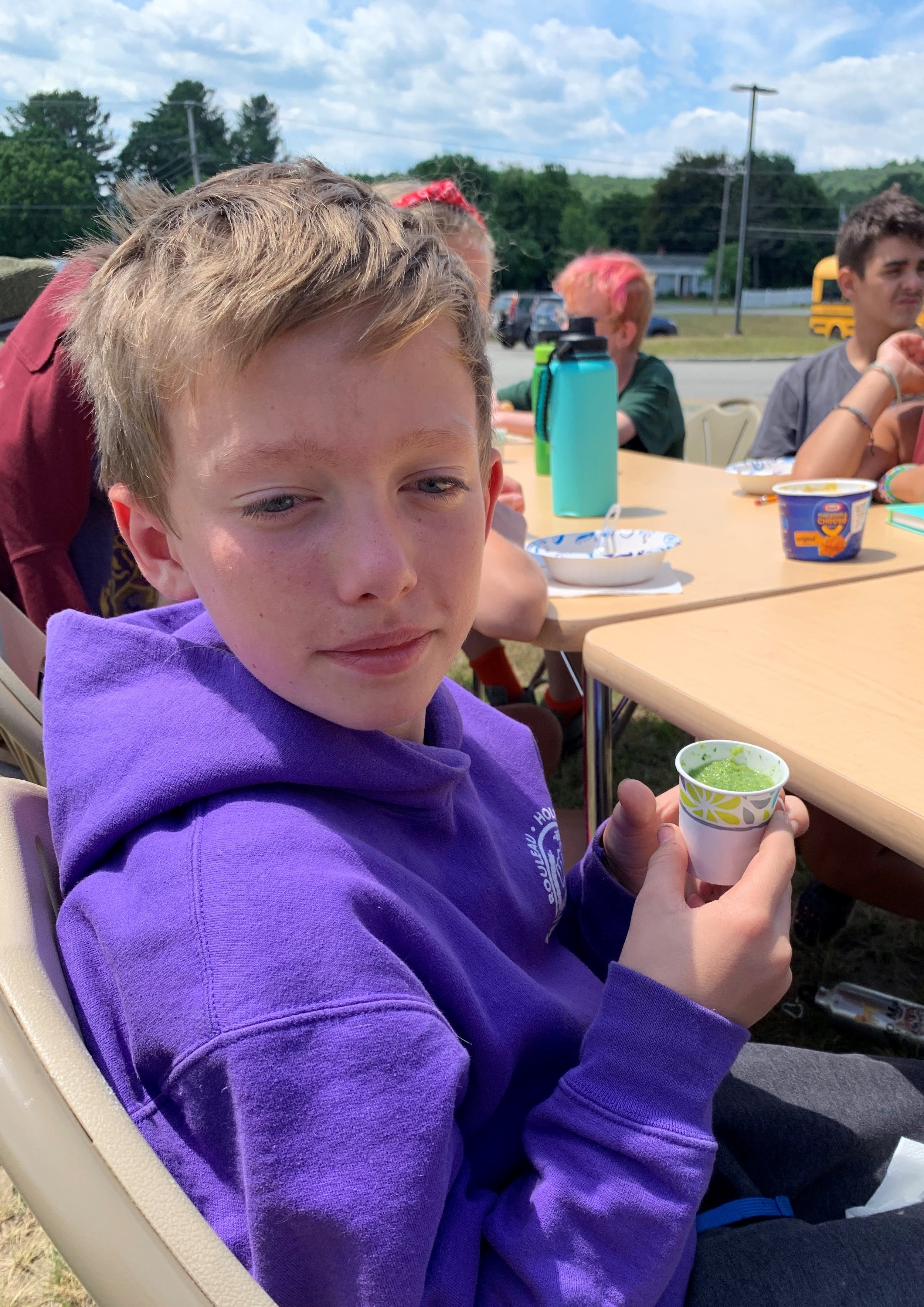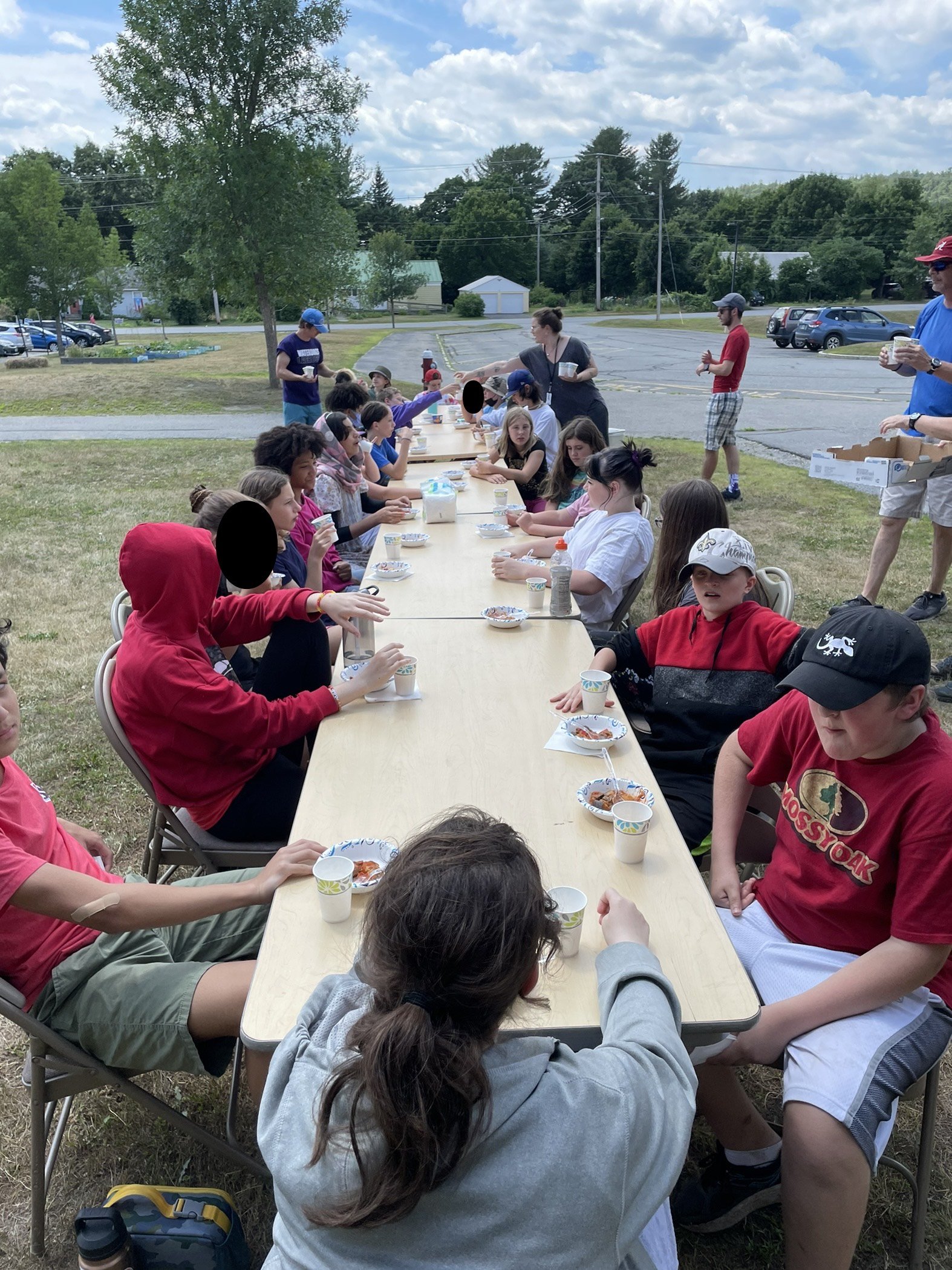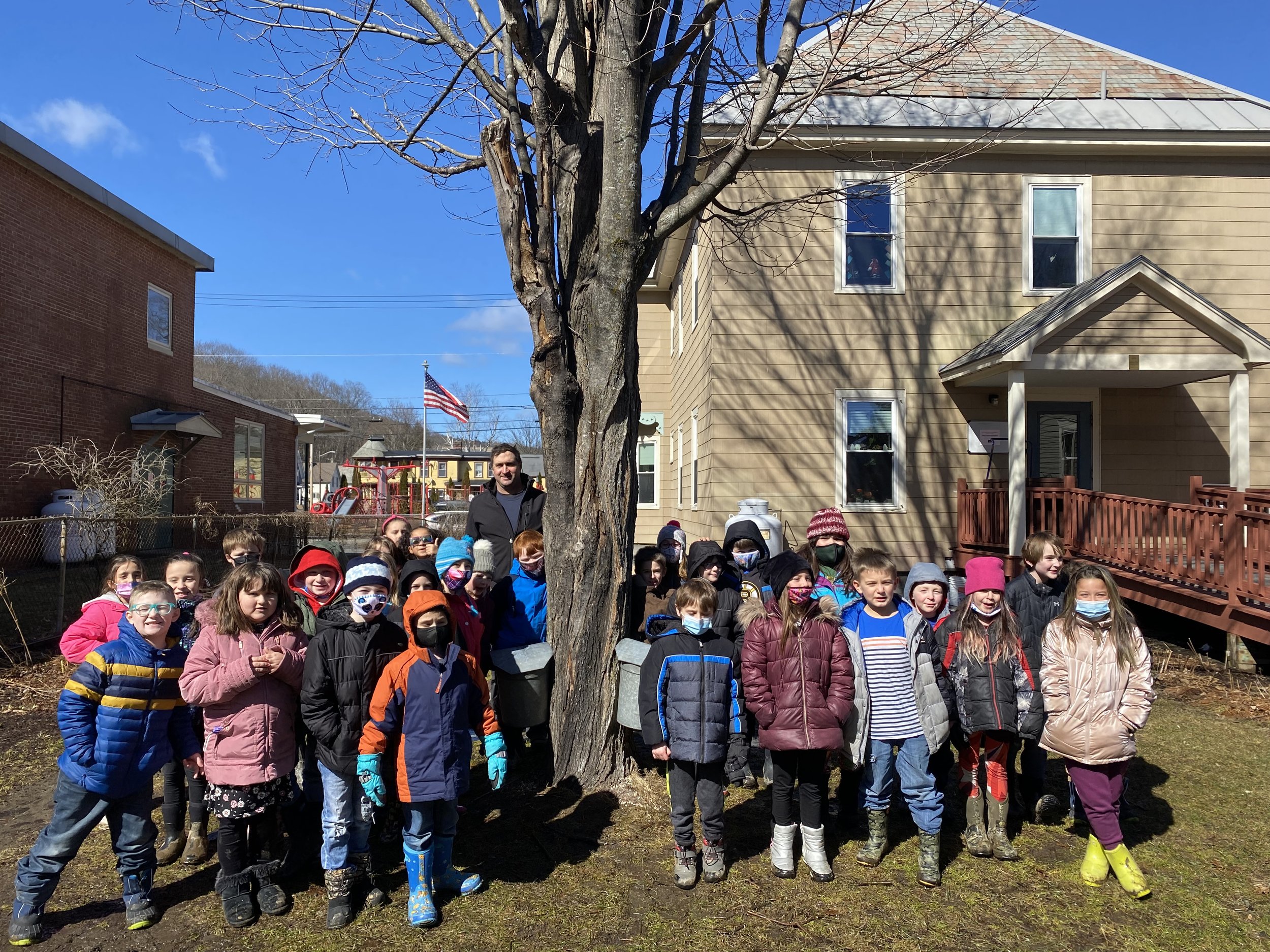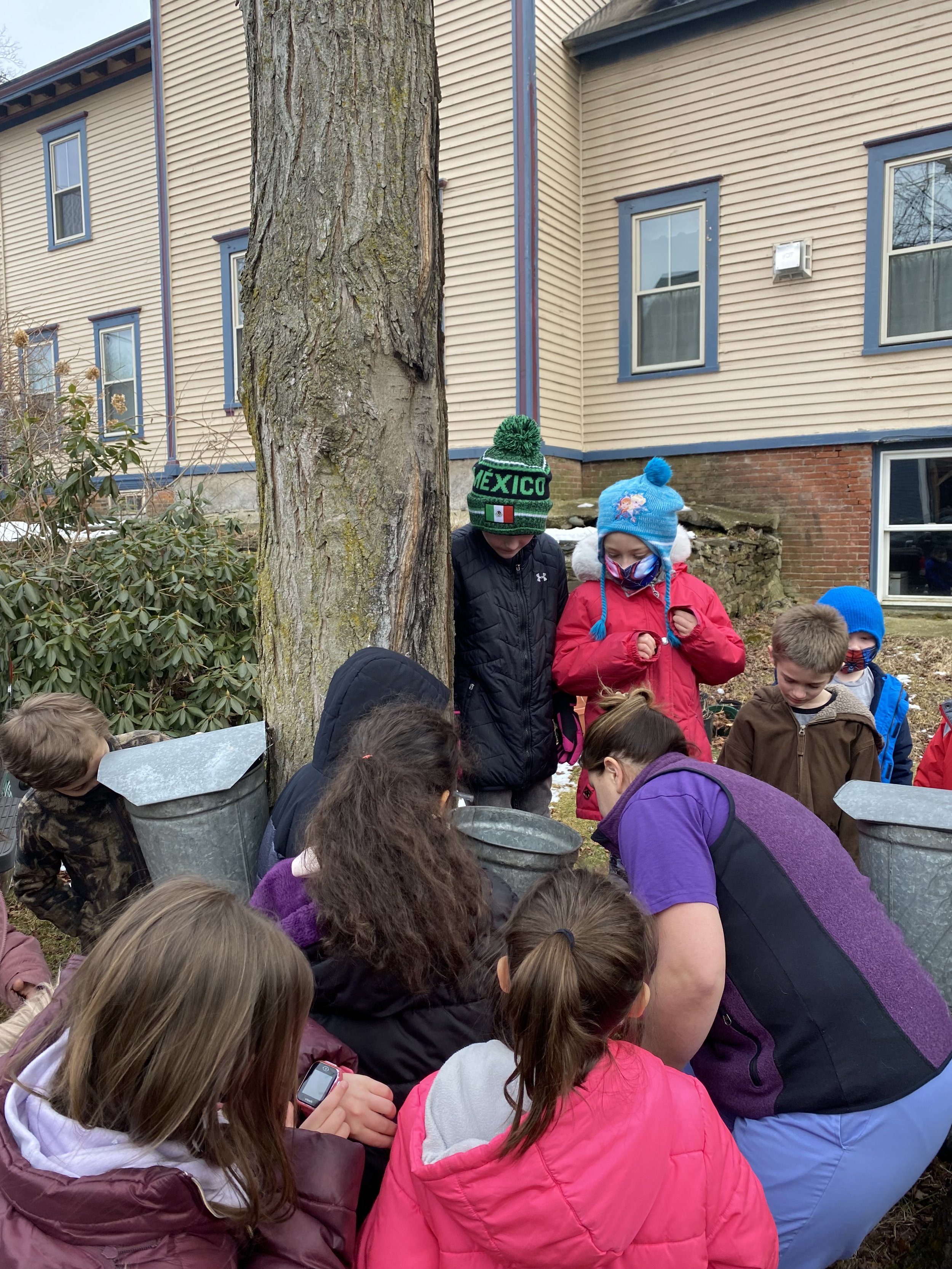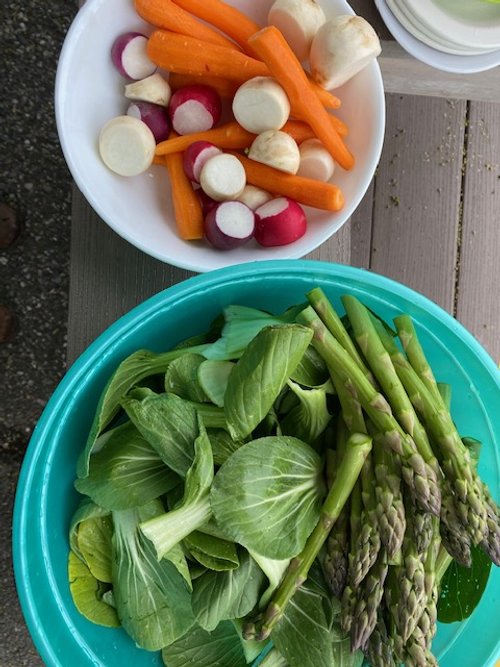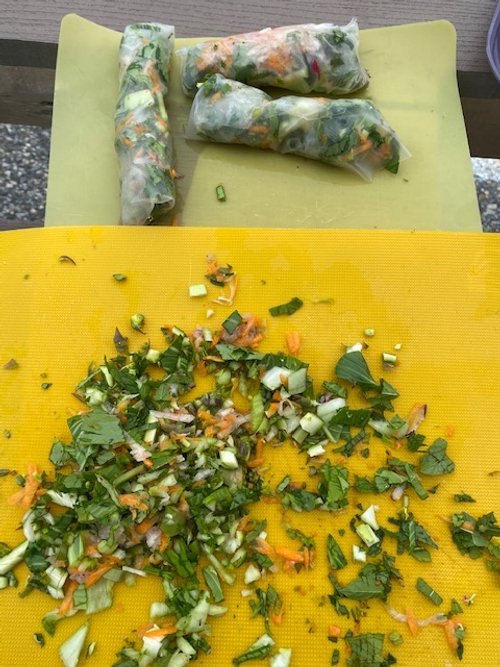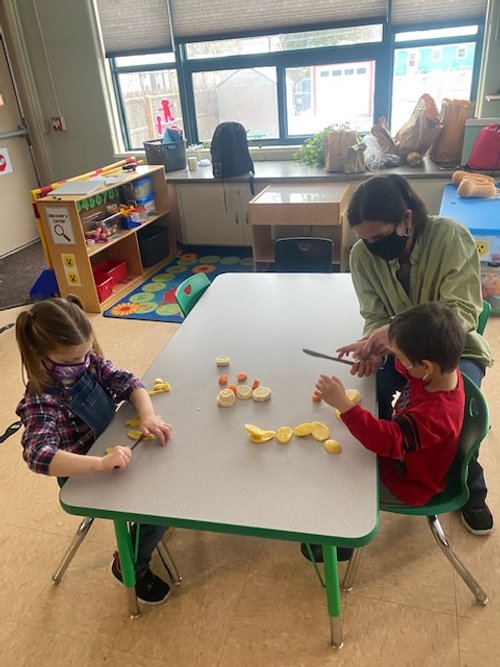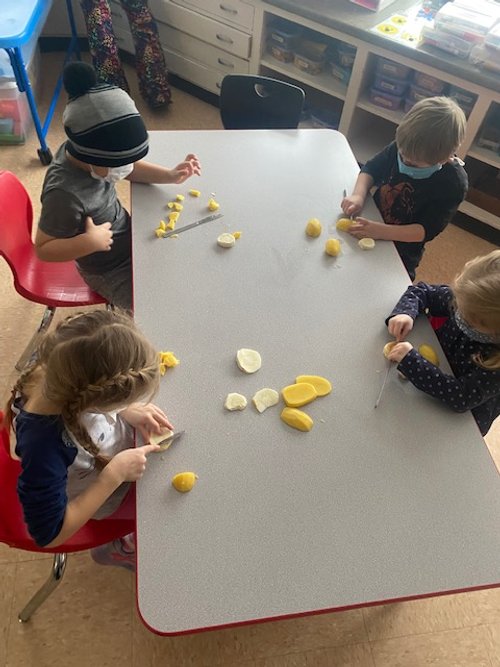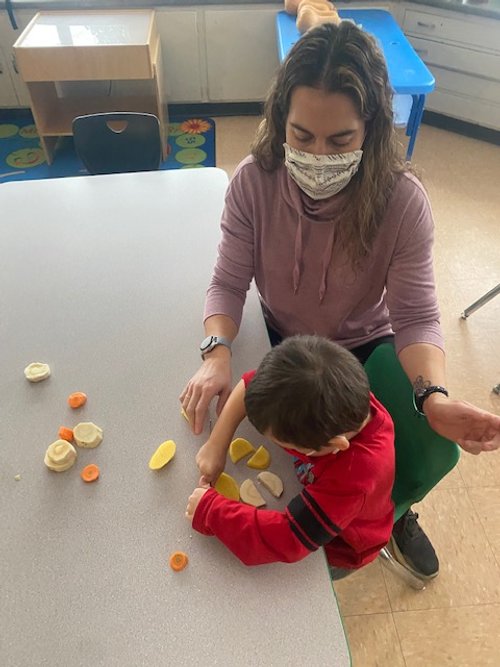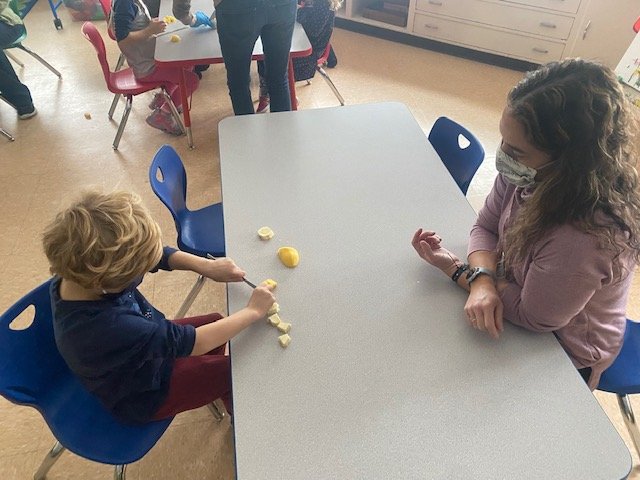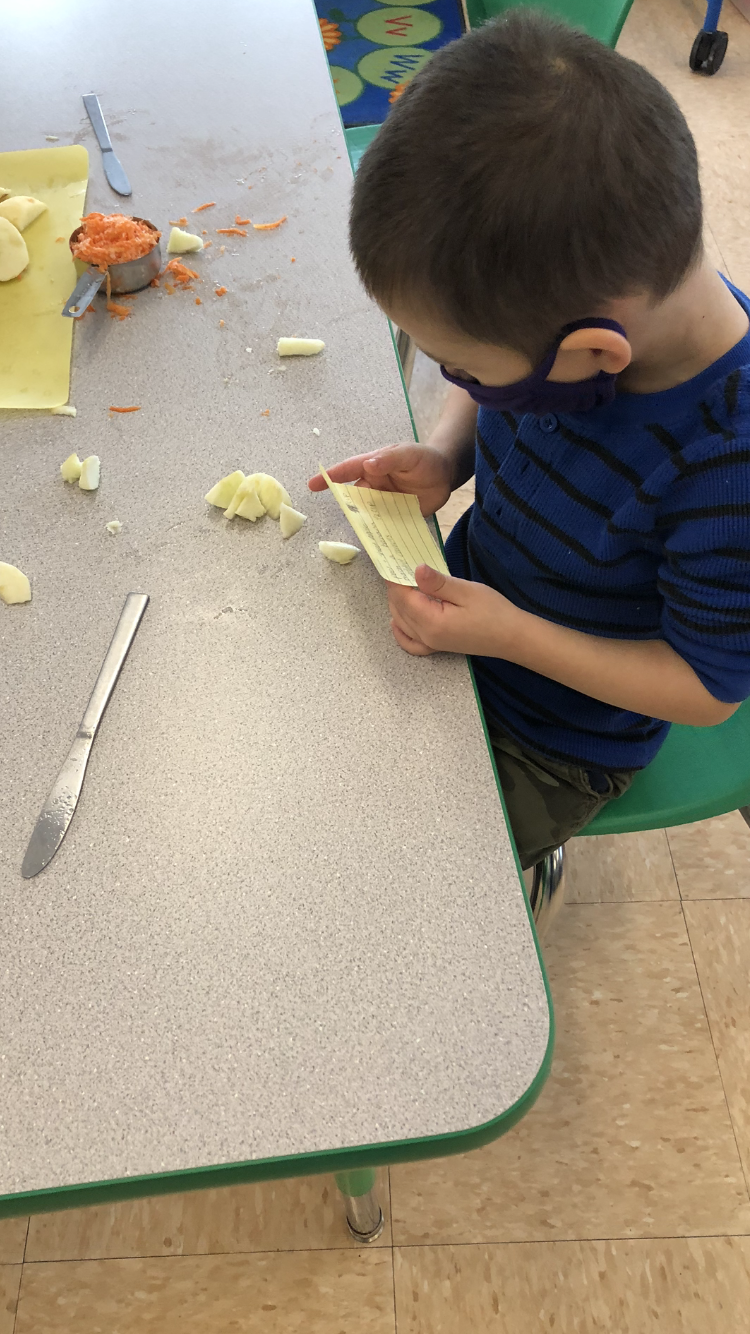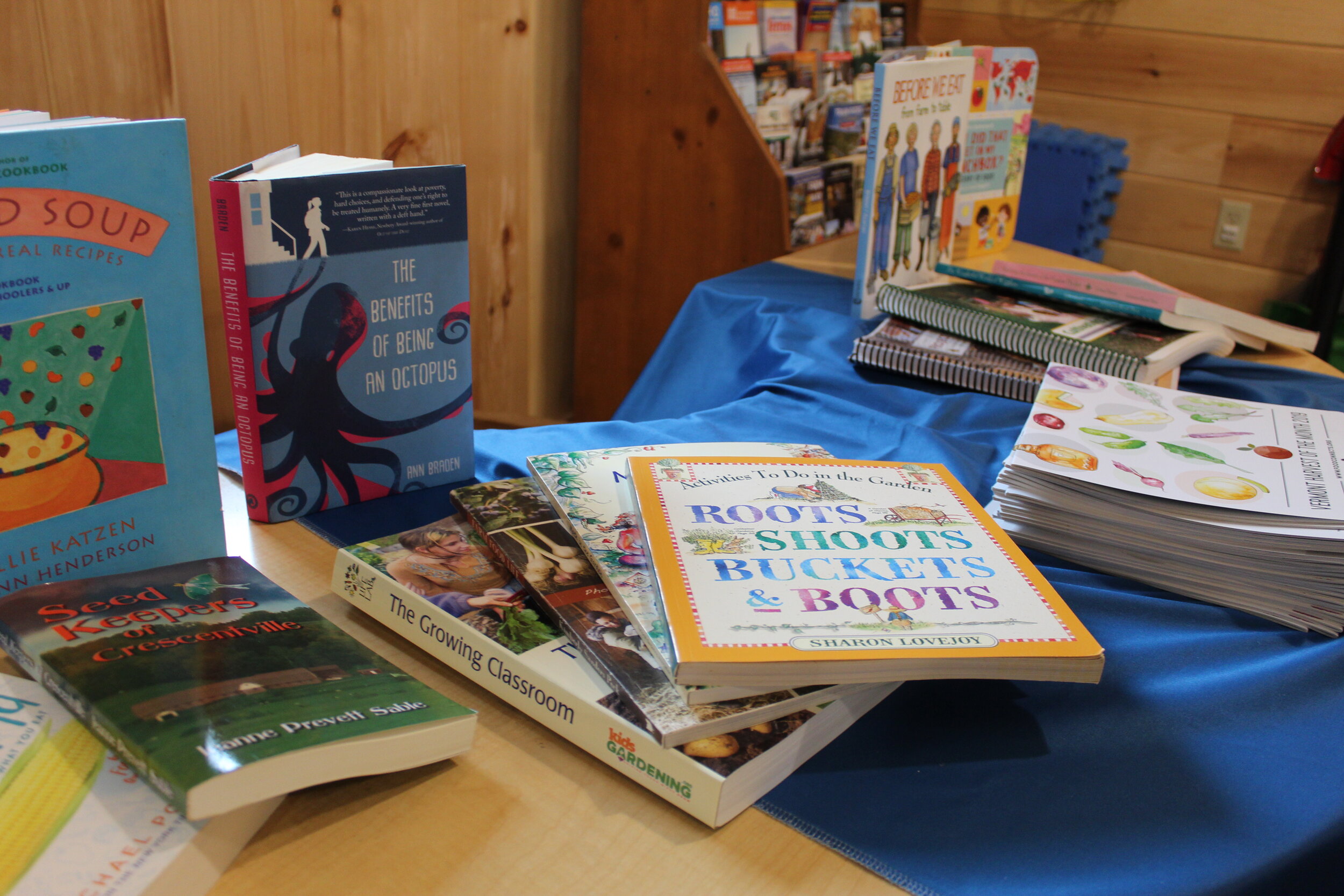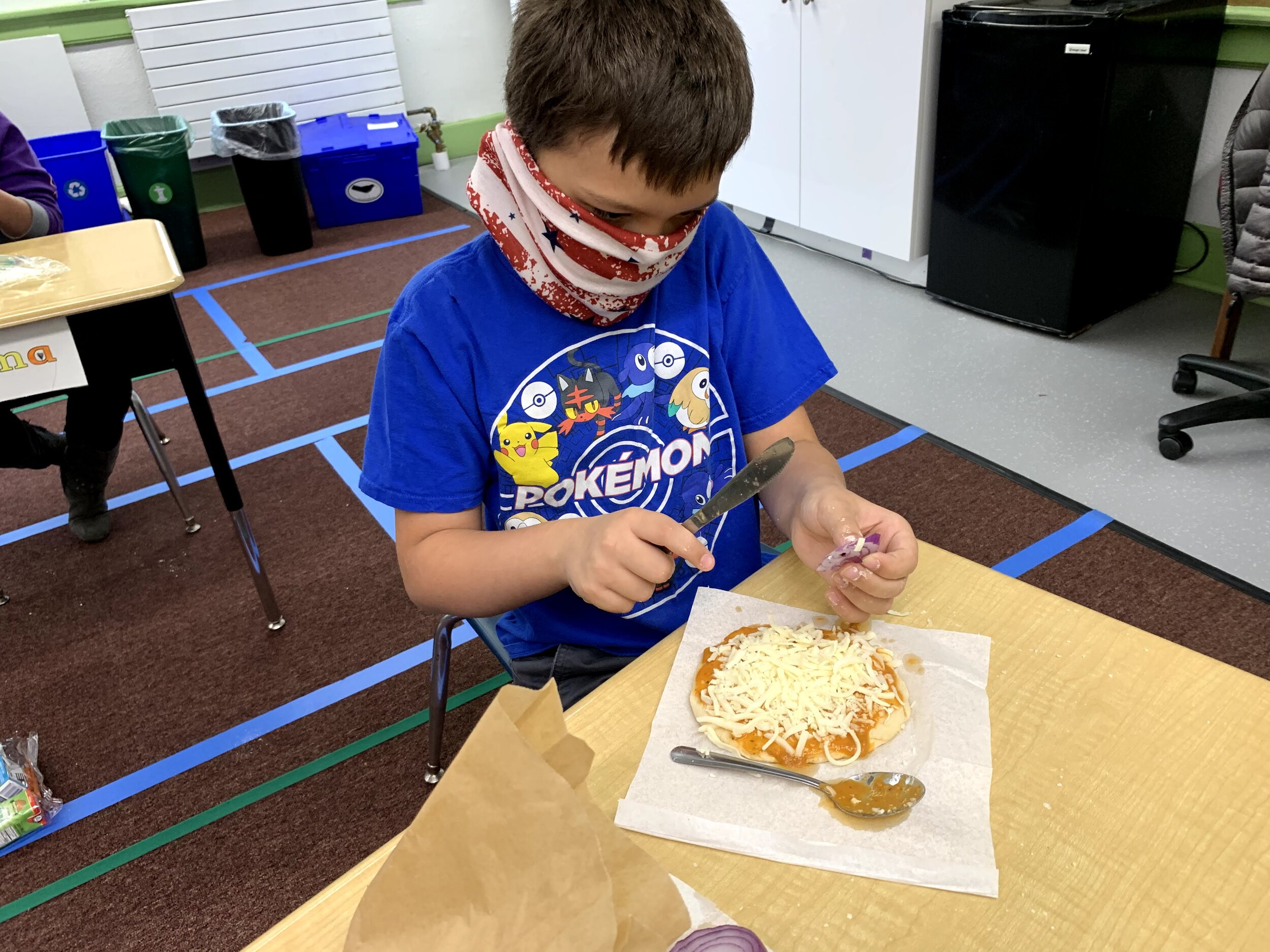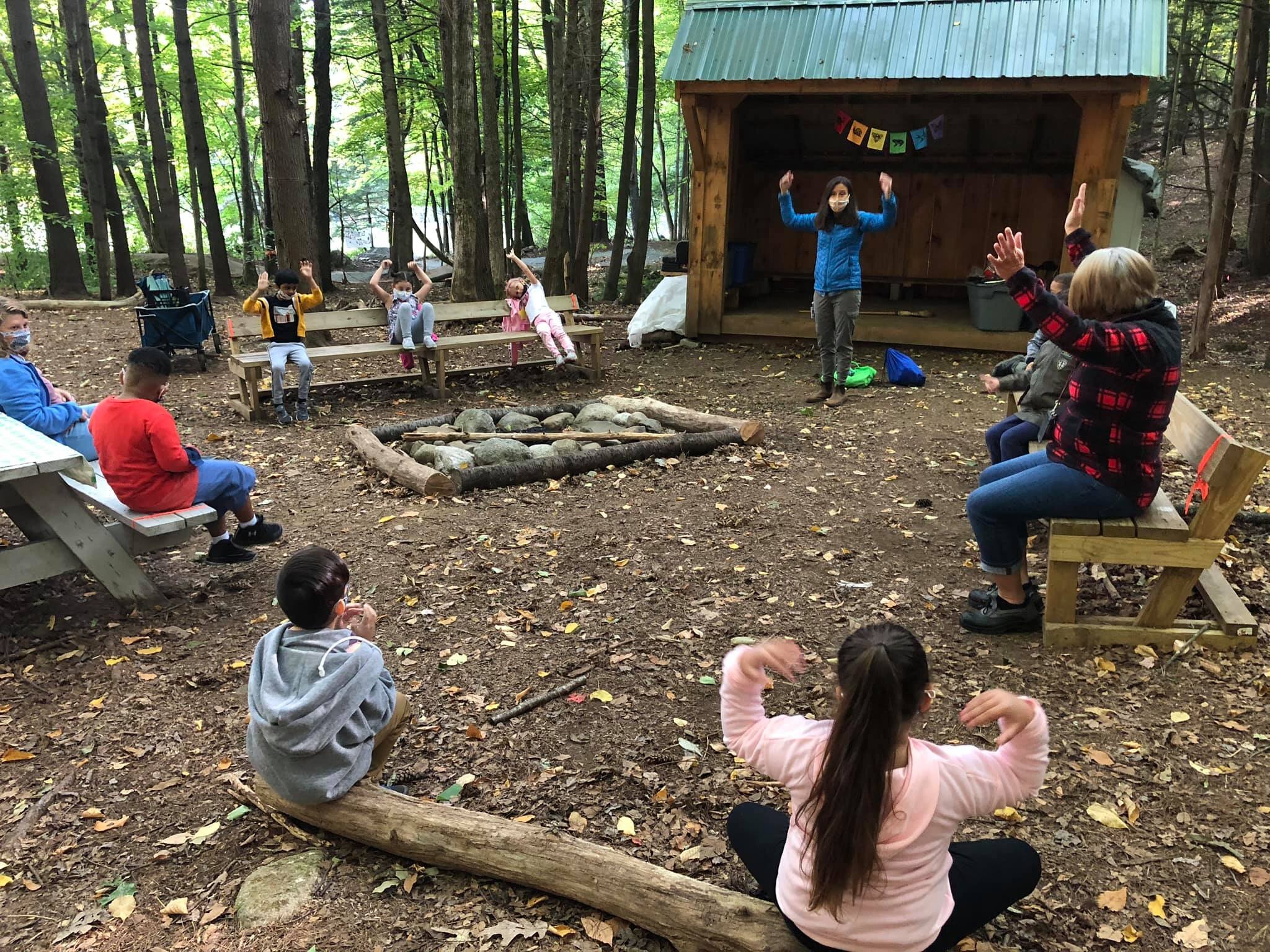13 lucky 4 to 5-year-old students got to enjoy many locally grown treats this year, including radishes, kale, beets, scallions, brussels sprouts, and winter squash. It was their first time trying some of these new flavors for many students. Pre-K staff Jen Tourville and Jamie Champney and garden coordinator Tara Gordon found creative ways to inspire the students to try new things. Adding mystery to the tasting lessons was one successful approach—from the five senses mystery box to mystery smoothies, student curiosity was encouraged.
Each week, Jen and Tara put a different produce item into the five senses mystery box—an oatmeal container with a sock sleeve attached by a rubber band. They invited the students to put their hand in and feel the item and describe it with words, strengthening their language skills while also piquing their curiosity.
Recently, Jamie made a mystery smoothie for the class with bananas, frozen berries, yogurt, and a mystery ingredient (spinach). “Some students had never been willing to taste a smoothie before because they were already convinced that they wouldn’t like it,” Jamie said. “Adding mystery to the activity made all students curious enough to try it, and big surprise—they all liked it!” After they had tasted the smoothie and made guesses about the secret ingredient, Jamie revealed the spinach to her surprised students.
Produce that arrived weekly in the CSA share helped students make a connection to their school garden, where many of the same plants were growing. Tara regularly took students to the garden to harvest produce, and they combined their school garden-grown produce with produce from Full Plate Farm to cook some delicious recipes. The class cooked twice a week throughout the season, which was new and wonderful! Here are several of the most popular things they made:
Jamie shared that often the students’ first response to the idea of new food was, “Yuck, I don’t like this!” but she discovered that when they cut the veggies into fun shapes or tried adding interesting flavors, for example, agave syrup to change the flavor of the radishes, students were pleasantly surprised to learn that in fact, they did like that food after all! For the more reluctant students, Tara introduced a five senses taste test, where the students closed their eyes and sometimes even plugged their noses when trying new food to focus on the texture of the food in their mouths.



